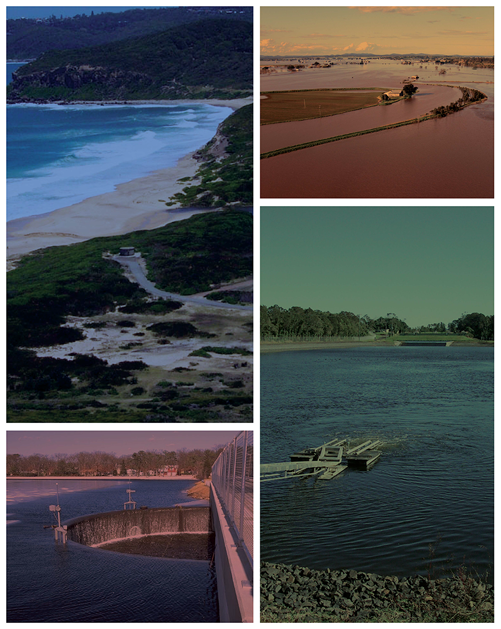Project Updates
Project 11
The Stage 2 report on Blockage of Hydraulic Structures has been released for industry comment. Hydraulic blockages can occur within a variety of structures including stormwater inlets and pipes, cross drainage structures, especially culverts and bridges, overland flow paths, drainage channels and waterways, dams and weirs. The principal areas of interest within this report are culverts and bridges as cross drainage structures and the inlets and pipes of urban drainage systems. The issues addressed within this report include:
- Design of drainage systems
- Evaluation of the performance of existing systems
- Management of blockage
Blockage has been identified as an important aspect of drainage planning and design, but one that is little understood and often poorly managed. Blockage can have significant impacts on the drainage system and can lead to costly and sometimes dangerous impacts on the community. This report has followed on from Stage 1 of the project and has indicated recommended design guidance for the incorporation of blockage into the planning, design and management of drainage systems. Download Report
Project 6 and 7 – Losses and Baseflow
The Queensland Water Panel is giving a presentation on Projects 6 and 7 of the ARR revision. This seminar will cover the outcomes from:
Losses
The lack of guidance on design losses has long been regarded as one of the greatest weaknesses in the current edition of ARR. A pilot study has been completed involving 10 catchments (3 from Qld) which will inform the conceptual loss models and approach to be applied to a wider data set, which will ultimately underpin the new guidance in ARR.
Baseflows
Baseflow can potentially represent a significant contribution to smaller flood events. The baseflow characteristics were analysed for over 30,000 flood events from 230 catchments. Regional prediction equations have been developed to enable the estimation of baseflow for ungauged catchments across Australia and guidance provided on how to incorporate baseflow in design flood estimates.
The details are
Venue: Hawken Auditorium, Engineering House, 447 Upper Edward Street, Brisbane, QLD
Date: Wednesday, 20 February 2013
Time: 11:45am for 12 noon start
Cost: Free for EA Members/Students, $20 for Non-EA members – Light snacks and beverages will be provided
Project 15
Deadline for industry comment on Project 15 (2D modelling) is February 19th. Send you reviews to p15@arr.org.au
Report Review Process
The Revision team is committed to producing a quality project for industry. As part of the revision process has been developed where reports are reviewed by the Technical Committee as well as Australian and International reviewers. The following reports are undergoing the detailed review process prior to release to the industry for comment and are expected to be released soon.
-Project 6 – Losses (Rural component)
General Updates
Call for Reviewers
Those interested in reviewing projects should email arr_admin@arr.org.au or review@arr.org.au briefly describing which projects they are interested in reviewing and what qualifications/experience they have in those practice areas.
Australian Rainfall and Runoff has joined LinkedIn. Join the group for discussions and updates on the revision of Australian Rainfall and Runoff.



Leave a Reply